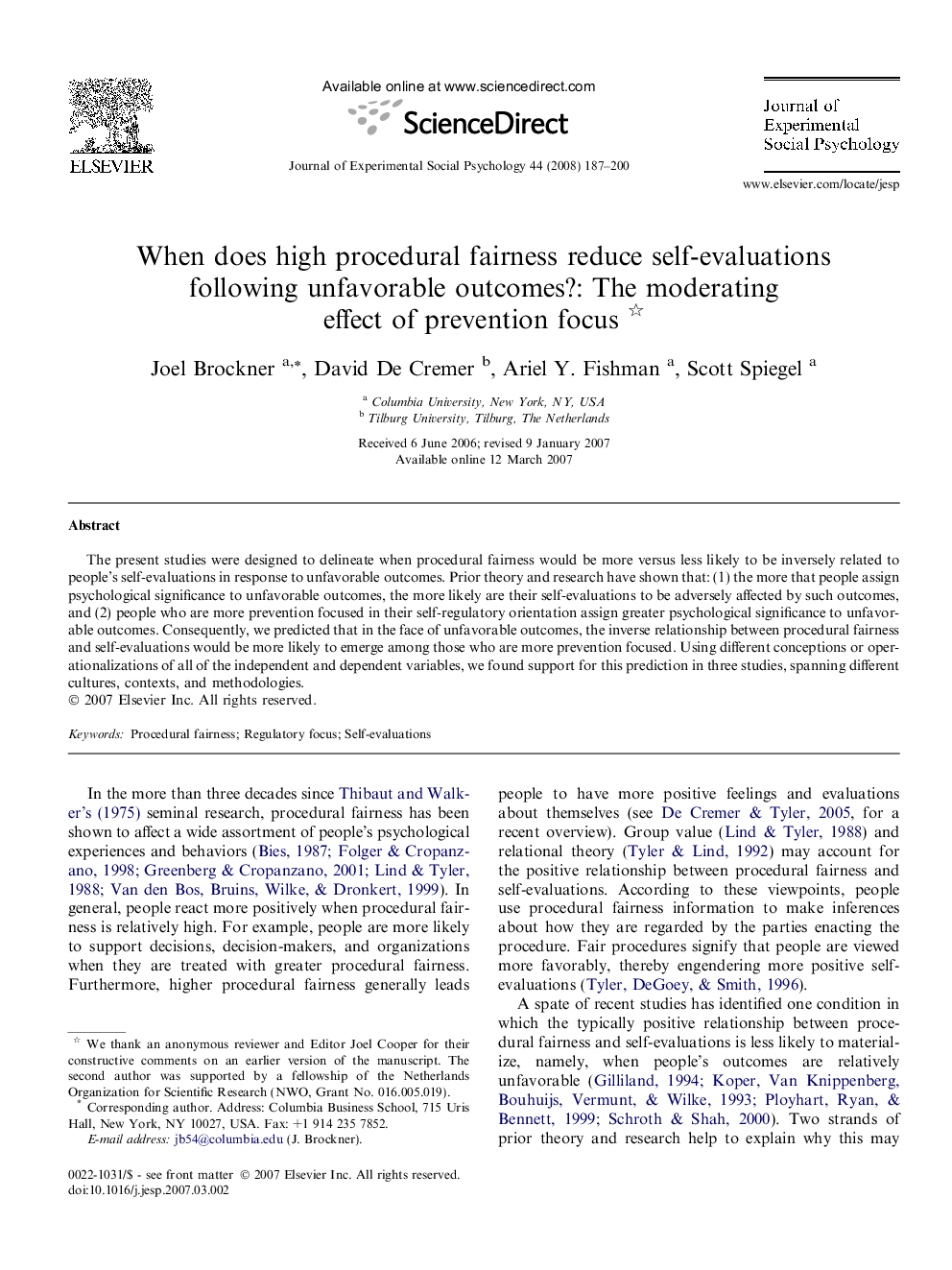| Article ID | Journal | Published Year | Pages | File Type |
|---|---|---|---|---|
| 948532 | Journal of Experimental Social Psychology | 2008 | 14 Pages |
The present studies were designed to delineate when procedural fairness would be more versus less likely to be inversely related to people’s self-evaluations in response to unfavorable outcomes. Prior theory and research have shown that: (1) the more that people assign psychological significance to unfavorable outcomes, the more likely are their self-evaluations to be adversely affected by such outcomes, and (2) people who are more prevention focused in their self-regulatory orientation assign greater psychological significance to unfavorable outcomes. Consequently, we predicted that in the face of unfavorable outcomes, the inverse relationship between procedural fairness and self-evaluations would be more likely to emerge among those who are more prevention focused. Using different conceptions or operationalizations of all of the independent and dependent variables, we found support for this prediction in three studies, spanning different cultures, contexts, and methodologies.
